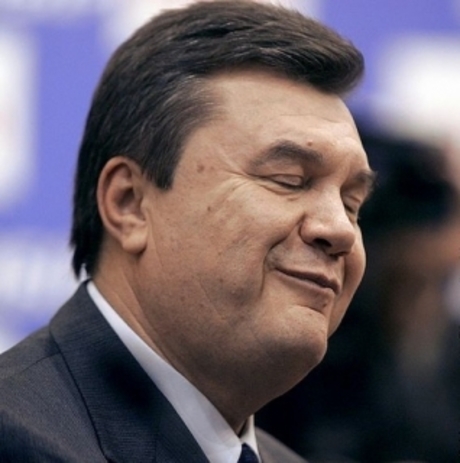Only for People with Strong Nerves
April 8, 2013 -
Paweł Kowal
-
Bez kategorii

Yanukovych.jpg
Yuri Lutsenko is free again. This is the first positive signal we have had from Kyiv in recent months. And yet some of Viktor Yanukovych’s critics will not sleep calmly once they read the commentaries that have been printed in the West regarding this event.
“Don’t they understand anything?” they will ask, irritated. Yanukovych’s administration will, of course, follow all the signals and reactions. This is why it is worth stressing that pardoning Lutsenko, one of the most intelligent opposition politicians in Ukraine, is a success of the persuasion towards the Ukrainian government and the success of a policy of “keeping face” by all participants in the conflict and discussion: starting from the opposition to the Ukrainian government and the European politicians who, up to their ears, have been engaged in this Ukrainian conflict.
This is also the success of Alexander Kwaśniewski and Pat Cox. But also Martin Schultz, the current President of the European Parliament, who supported their mission despite the opposition of European politicians, but also – at times – common sense and rational calculations.
One could also say this: Lutsenko is being freed, but the problem is still far from being resolved. The truth is that Ukraine still needs serious reforms in its judicial system. Yes, the judicial system not the prosecution or legal representation. Reform has to start with the courts. Ordinary people, not only politicians whose faces we see on the front pages of newspapers and magazines, should feel that justice is out there.
To make things even more interesting, I discussed the very same thing with Lutsenko when I met him in his Kyiv cell exactly one year ago on Good Friday. The message that Lutsenko put forward is the main thing the EU expects from Ukraine. And regardless how cruel it sounds, the problem does not lie with one person. It is the problem of the system as a whole. Hence, one can also say that the pardoning of Lutsenko is the success of President Yanukovych who has showed that he is capable of generosity; but, formally, it is also a success for Lutsenko as, upon the petition of Ukraine’s Ombudsman and not the pressures of the West, he has been able to leave his prison cell.
It is also the success of a few Ukrainian diplomats stationed in Brussels, Washington, DC and Warsaw, who I am convinced were sending messages about the need to make a “gesture” in every dispatch to Kyiv. This pardon is also the success of Ukraine’s minister of foreign affairs, Leonid Kozhara, who, although often irritated with the constant talking in Brussels about the cases of Tymoshenko and Lutsenko, understood, better than most, the importance of this issue. And this pardon is also the success of some European politicians and diplomats who were waiting for a positive signal from Bankova Street in Kyiv; and the success of the Polish President, Bronisław Komorowski, who conditioned his relationship with President Yanukovych on the solving of Lutsenko's case.
Only Ukraine has not had success here. It has only won some time. Ukraine’s success will come with the signing of the Association Agreement with the European Union due to take place in the autumn at the Eastern Partnership Summit in Vilnius, Lithuania. Until then, we will still probably see a few sharp political turns. Ukrainian politics is a profession for people with strong nerves.
Translated by Iwona Reichardt
Paweł Kowal is a Polish politician and member of the European Parliament where he chairs the EU-Ukraine Parliamentary Cooperation Committee. He is also an adjunct at the Institute of Political Studies of the Polish Academy of Sciences.

































